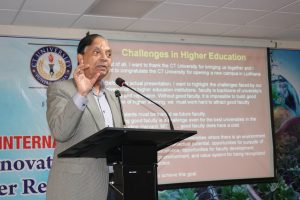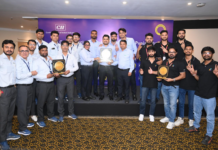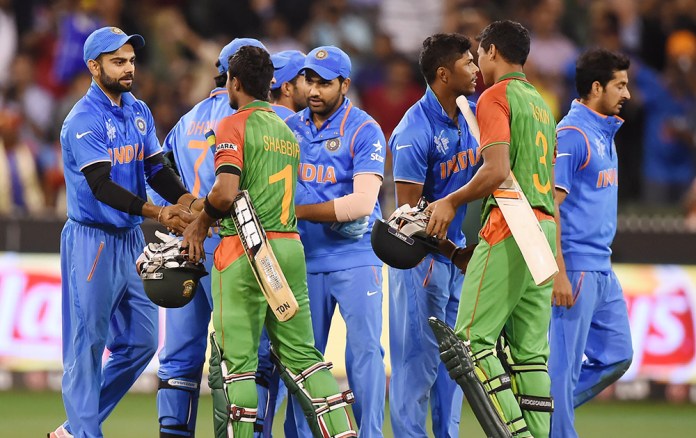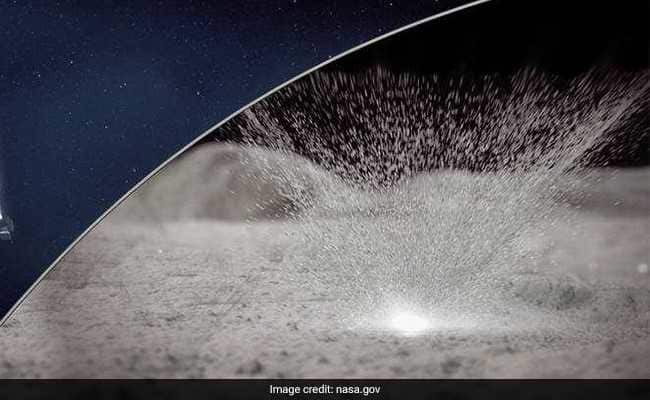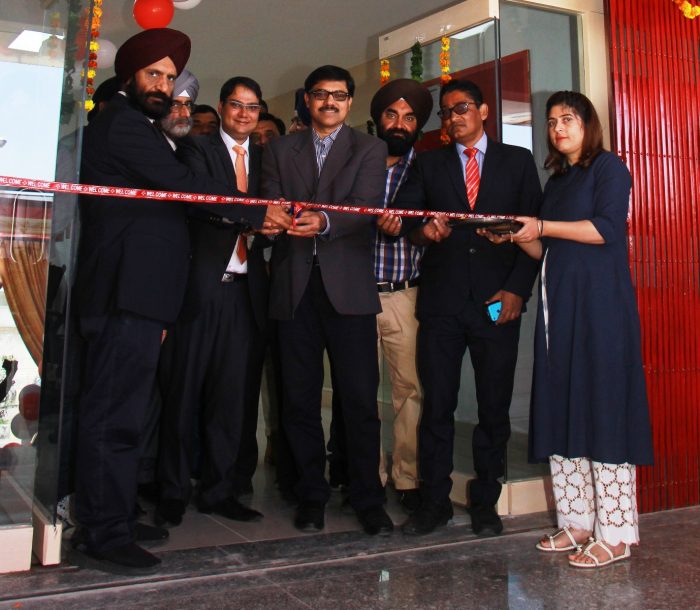Ludhiana: Scientists from Canada, USA and India voiced their concern for adopting sustainable and innovative water saving approaches, strategies and polices, in an International Workshop on “Innovations in Sustainable Water Resources Management” (ISWRM-2018) organized by CT University, Ludhiana at its campus.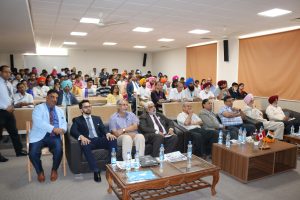
The workshop was held with the support of IC-IMPACTS and initiative of IC-IMPACTS HQP network and empowered by McGill University, Montreal to highlight the importance of sustainable management and use of water resources vis-à-vis the current and emerging challenges/issues.
Eminent scientists leading the team of bio-resource and bio-systems management including Dr Shiv O. Prasher and Jaskaran Dhiman from McGill University, Montreal, Canada; Dr Ramesh P. Rudra from University of Guelph, Canada; Dr Manjit S. Kang, an Adjunct Professor at Kansas State University, USA; Dr Rameshwar Kanwar, from Lowa State University, USA and Dr Baldev Singh Naurth, Department of Agriculture, Punjab were the keynote speakers.
In his inaugural speech, the Chief Guest, S. Charanjit Singh Channi, Chancellor CT University, said that due to the swelling needs of population, growing urbanization, industry and intense agrarian activity, there is wide water ‘availability – demand gap’ which must be bridged with technology, governance, policy planning and management. He said that the name of Punjab itself means a land of five rivers and that water bodies have been sustaining the civilizations and civil establishments for centuries. He motivated the participants to respect the natural resources and endeavour to save them for posterity.
Pro Vice-Chancellor, Dr Harsh Sadawarti welcomed the eminent scientists and other participants and shed light on the need for strengthening research on water issues and highlighted the need for collaboration within the country and abroad
CTU Registrar Dr. Jagtar Dhiman, flashed the issues and concerns about water management such as depletion of underground water, scanty efforts for crop diversification, need for adoption of efficient water saving techniques, impact of free power and water to farmers, rampant water logging in southern region of Punjab.
Dr Shiv O. Prasher, apprised the audience on the role that IC-IMPACTS is performing for sustainable water management. He shared how the innovative approaches such as biochar and hydrogel can form part of the water conservation and management strategies. On the same lines, Jaskaran Dhiman, Coordinator of IC-IMPACTS Research Coordinator, (Qubec) from McGill University, said that water security is the most critical issue of the century which is being jeopardized due to availability, pollution and toxicity issues, adding that certain innovative strategies are available for safe use of wastewater for irrigation and that the IC-IMPACTS brings together the experts and stakeholders to address the issues.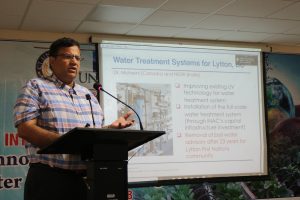
Dr Ramesh Rudra shared new engineering approaches to watershed management and said that public involvement is vital for the success of any innovation.
On this occasion, several other activities were held. Dr Neeta Raj Sharma, held a workshop session on Biochar production and application for water remediation. A signature campaign on “Let us save water, every drop matters” was held in which all participants signed the pledge panel. A video clipping of messages by eminent scientists from Guatemala, Libiya, China, Turkey, Canada, USA, India was played in this International Workshop.
Dr Rameshwar Kanwar put forward Punjab’s major water challenges and suggested their possible solutions. He emphasized the need for working with commitment for the adoption of the available remedies. Corroborating his views, DrBaldev Singh Naurth from Department of Agriculture, Punjab shared the public policies aimed at water saving and highlight the impact of Preservation of Subsoil Water Act (2009) on groundwater depletion. He said that the effective enforcement of the Act led to paddy transplanting only after June 20 in Punjab.
